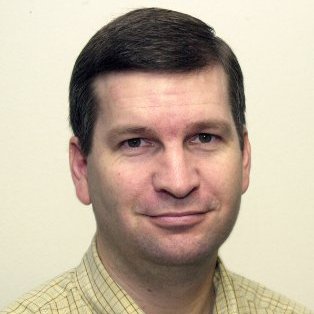TCEQ Director Michael Honeycutt Will Lecture for Environmental Science Seminar Series

Michael Honeycutt
(Courtesy photo)
Follow us on Twitter: @BaylorUMediaCom
Media contact: Tonya Lewis, (254) 710-4656
WACO, Texas (Sept. 16, 2013) - Michael Honeycutt, Ph.D., director of the toxicology division of the Texas Commission on Environmental Quality (TCEQ), will give a lecture entitled "Toxicology at the TCEQ: What do Regulatory Toxicologists Do?" at Baylor on Thursday, Sept. 19.
The event is sponsored by the department of environmental science in Baylor's College of Arts & Sciences.
Honeycutt has worked for TCEQ for 17 years. He reviews air permit applications, results of ambient air monitoring projects and human health risk assessments for hazardous waste sites. He also updates TCEQ's Effects Screening Levels, or toxicity factors for chemicals. He is a technical resource for issues concerning air and water quality, drinking water contamination and soil contamination.
"Over the past 20 years, toxicology has changed immensely," Honeycutt said in a company newsletter. "Techniques for evaluating the harmful effects of a chemical are much more advanced, particularly when it comes to the way chemicals affect human cells. We also understand more about the human body and how it responds to chemical exposure. Now, we need to rethink the way we conduct risk assessments to better incorporate all this new knowledge, to help our risk assessments to be more realistic and predictive."
Honeycutt is under consideration to be a member of the EPA scientific advisory board.
"I've known Mike for over 15 years, and I have the utmost respect for him as an objective scientist," said George Cobb, Ph.D., professor and departmental chair of environmental science.
"Mike will be talking about issues of environmental quality and environmental protection that impact the entire Baylor community," Cobb said. "He'll be talking about the types of projects and skills that students might need in order to pursue careers in the type of job that he currently occupies."
The seminar will be held from 1 to 1:50 p.m. in Room E234 of the Baylor Sciences Building, 101 Bagby Ave. For more information, contact Baylor's department of environmental science at (254) 710-3443.
by Rachel Miller, student newswriter, (254) 710-6805
ABOUT BAYLOR UNIVERSITY
Baylor University is a private Christian university and a nationally ranked research institution, characterized as having "high research activity" by the Carnegie Foundation for the Advancement of Teaching. The university provides a vibrant campus community for approximately 15,000 students by blending interdisciplinary research with an international reputation for educational excellence and a faculty commitment to teaching and scholarship. Chartered in 1845 by the Republic of Texas through the efforts of Baptist pioneers, Baylor is the oldest continually operating university in Texas. Located in Waco, Baylor welcomes students from all 50 states and more than 80 countries to study a broad range of degrees among its 11 nationally recognized academic divisions. Baylor sponsors 19 varsity athletic teams and is a founding member of the Big 12 Conference.
ABOUT BAYLOR COLLEGE OF ARTS & SCIENCES
The College of Arts & Sciences is Baylor University's oldest and largest academic division, consisting of 26 academic departments and 13 academic centers and institutes. The more than 5,000 courses taught in the College span topics from art and theatre to religion, philosophy, sociology and the natural sciences. Faculty conduct research around the world, and research on the undergraduate and graduate level is prevalent throughout all disciplines.